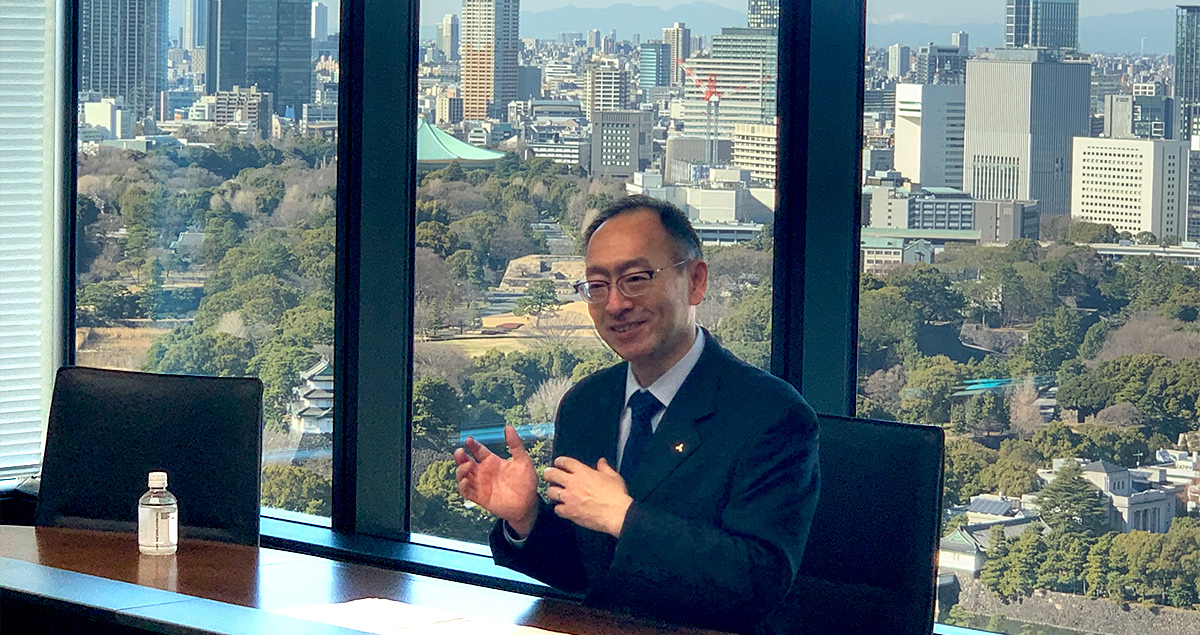Getting global technology governance right: A practical point of view

Technology is central to modern life and will play a crucial role in helping the world recover from the COVID-19 pandemic. But as we harness powerful new technologies brought about by the Fourth Industrial Revolution, such as the Internet of Things (IoT) and Artificial Intelligence (AI) to "build back better", we have to make sure that we adopt them in such a way that they do not exacerbate inequality, destroy jobs and livelihoods and enable abuses of power.
This is why technology governance is becoming such an important issue and why I am delighted that leaders from more than 50 governments and 600 companies are taking part in the first Global Technology Governance Summit (GTGS), being held by the World Economic Forum (WEF) in Tokyo, Japan and virtually in April 2021.
Our aim will be to develop a common set of guidelines on how to implement both existing and future technologies -- guidelines that address a series of current "governance gaps" of which we are aware, without slowing progress and innovation. We will consult widely: this will not be a dialogue just between industry and government but will involve international organizations, entrepreneurs, academia and civil society in the broadest sense.
That is an important point because it is arguable that in the past, regulations and rules have too often been designed by the public sector with not enough consideration of other perspectives. In a fast-moving field like technology, it is all too easy to stifle new ideas by imposing restrictions that quickly become outdated.
This is where I believe a company like Mitsubishi Heavy Industries (MHI) Group has an important role to play. We supply the technology for some of the world's most critical infrastructure, from power generation and transportation networks to defense and space systems. Our customers already work to extremely high standards that cannot afford any failures or downtime and where security and proper protocols are an essential part of the system. They - and therefore suppliers, such as ourselves - are constantly updating and developing their technology to improve performance while reducing costs.
That means new rules and regulations they are asked to adopt regarding such technology should be simple and easy to implement, with short lead times, a low social cost and as much operational flexibility as possible. I believe that as a member of this forum, MHI can communicate such a real-world perspective to government officials and other stakeholders.

As a realist, I do not underestimate the challenges. Since most national governments will have somewhat different priorities it will be difficult to produce a uniform set of global technology governance standards. But both the pandemic and climate change are showing us that humanity can unite in times of crisis and that gives me cause for optimism.
So I would judge the GTGS a success if a year or so from now, we have developed a body of common guidelines that most economies and industries around the world are prepared to implement, even if they then customize them to suit more local needs. Maybe, 80% will be common and 20% can diverge.
Of course, not everyone will agree with every new guideline but no doubt they will continue to evolve, just as the technology they are meant to govern continues to develop. For our customers and for companies like ours, such new rules will no doubt impose short-term costs. But they should also bring us opportunities as common standards promote the development of global products that can be used to solve critical challenges around the world like achieving carbon neutrality, enhancing mobility and creating a safer environment.
The 400-year old Japanese practice of Stakeholder Capitalism





